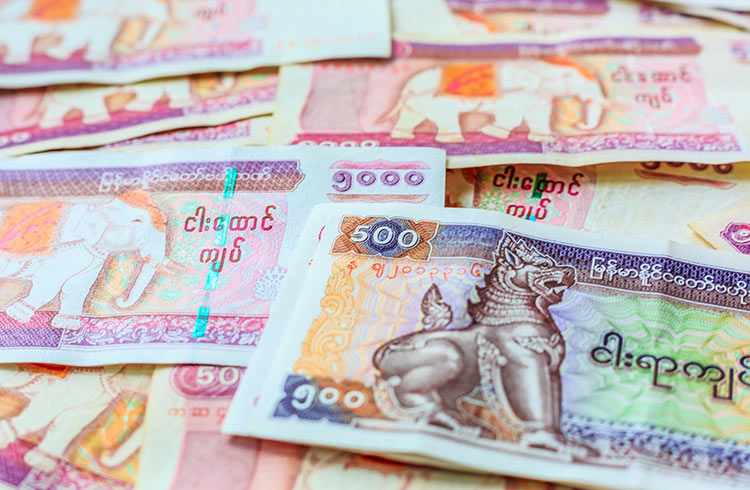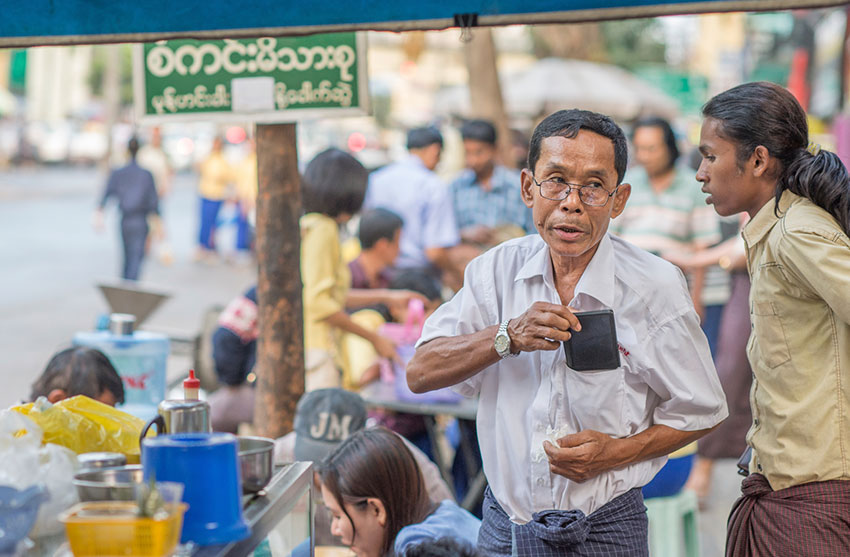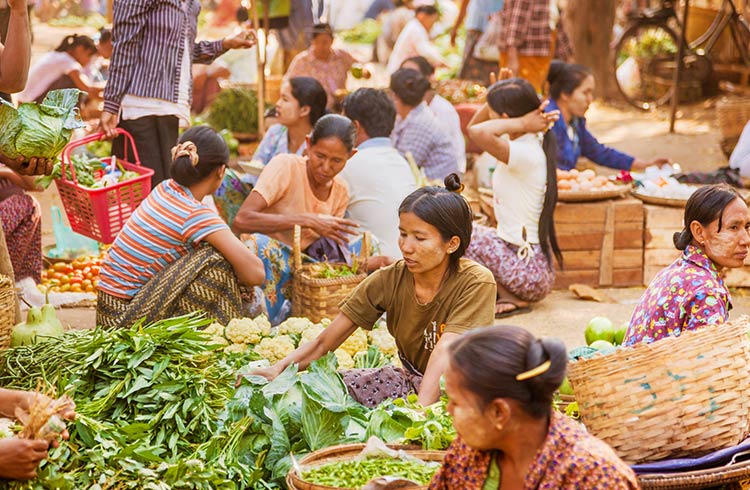Money in Myanmar: A Travel Guide to Cash and Cards
As Myanmar’s fresh-faced tourism industry continues to blossom, so does the accessibility of its currency. Here are some tips on what you need money wise and how to keep it safe.
 Photo © iStock/AvigatorPhotographer
Photo © iStock/AvigatorPhotographer
Don’t get ahead of yourself thinking you’ll be able to get your hands on some kyat before you arrive, but you’ll find it easier than ever before to keep your finances stocked as you travel around.
ATMs are widespread in all major towns, including the smaller spots that are well-frequented by tourists. As with any developing nation, there is no guarantee of a 100% ATM success rate, but you certainly don’t need to plan on bringing all your funds in cash any longer. As an indication, in 2013 there were fewer than 100 ATMs in the country, as of 2018 there are more than 1,000.
Cash or card
The local currency is kyat (pronounced ch-yat), and this is the main form of tender used across the country. Previously, larger bills such as accommodation, overnight buses, and tours were payable in US dollars.
Although this may still be possible under certain circumstances, kyat is now the preferred currency, and visitors should plan to pay most expenses with it.
Major hotels in cities may accept payment by credit or debit card. This may however come with some heavy fees and less-than-desirable exchange rates, as well as lacking any guarantee that it’ll actually be functioning on the day. Be sure to check it out thoroughly before using the service, and have a backup plan in case paying with a card isn’t possible.
Exchange rates
It's not advised to exchange money in a bank or at the airport, as the rates are less competitive, although you will likely need to obtain a small amount of local currency upon arrival to pay for transport into the city. You can expect to receive around 1,500 kyat for US $1 (late 2019).
Exchange bureaus, banks and hotels have become more regulated and should, in theory, be offering similar rates. However, it’s always a good idea to shop around to get the best value exchange.
Exchanging money on the black market is only theoretically illegal, ask in any market, shop, or travel agents for an alternative rate comparison.
US dollars
US Dollars are the most widely accepted foreign currency for exchange. Larger denominations often bring a better rate, but you can expect to need to change the full amount of the bill, as foreign currency change is rarely available.
Most importantly - check the condition of your dollars - they must be as near to perfect as possible, otherwise the money changers will not accept them. Ensure they do not have any marks, stamps, anti-counterfeit pen, ink, or any other mark. Moneychangers have been known to reject notes just for being creased or lightly worn. Also, don't accept poor condition notes passed off to you.
If you're carrying US $100 bills with serial numbers starting "CB" they may not be accepted because they are associated with a counterfeit "superbill" which was in circulation some time ago. Many money exchangers also won't accept US bills made prior to 2006.
Money safety tips
You're now carrying around a wad of kyat that makes you look like you've robbed a bank, but is really just enough to get you through a couple of days. This makes cash security a problem – where do you stash all that cash?
Fortunately, crime is pretty low in Myanmar, it’s in the Buddhist religion that bad deeds do not go unpunished in the next life, so you're unlikely to be on the wrong end of a transaction with a heavily-armed thug. Still, try to keep it out of sight, and don't just stuff it in the backpack.
Adding to the problem, much of the tourist accommodation is basic and there aren't handy mini-safes in rooms. Try splitting the cash into smaller bundles, and distributing it around your luggage so you don't lose the lot to one light-fingered opportunist.
You will have opportunities to top up your cash supply in all major cities, and most well-traveled towns, either by ATM withdrawal or exchange. This negates the need to carry with you enough currency to last your full trip, but it is still recommended to plan ahead slightly more so than you would in more developed countries, just in case the ATM you are so desperately relying upon decides to let you down.
Related articles
Simple and flexible travel insurance
You can buy at home or while traveling, and claim online from anywhere in the world. With 150+ adventure activities covered and 24/7 emergency assistance.
Get a quote

No Comments